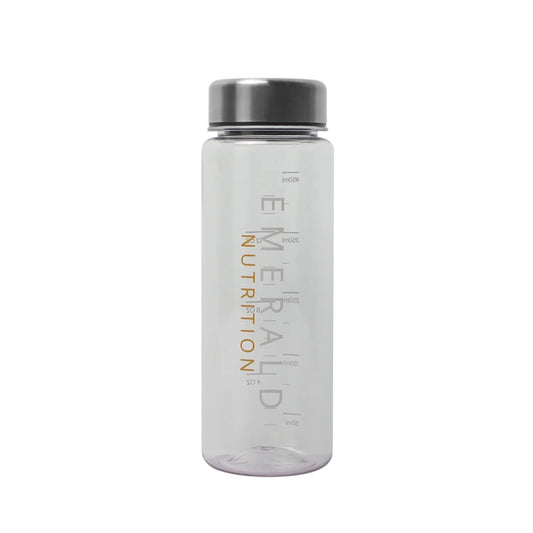
Adaptogens vs Functional Mushrooms: Benefits & Key Differences
Julia BłoszykShare
Adaptogens Vs Functional Mushrooms
In the world of wellness, two categories of natural health boosters are gaining serious traction: adaptogens and functional mushrooms. But what’s the difference between them? And where do powerhouse fungi like Reishi, Cordyceps, Lion’s Mane, Chaga, Maitake, and Shiitake fit in?
 At Emerald Nutrition, we believe in science-backed, plant-powered nutrition—and that includes understanding how these ingredients work. Let’s break down the difference between adaptogens and functional mushrooms, and introduce you to some of the most effective fungi nature has to offer.
At Emerald Nutrition, we believe in science-backed, plant-powered nutrition—and that includes understanding how these ingredients work. Let’s break down the difference between adaptogens and functional mushrooms, and introduce you to some of the most effective fungi nature has to offer.
What Are Adaptogens?
Adaptogens are a group of herbs, roots, and certain fungi that help the body adapt to physical, emotional, and environmental stress. Their job is to promote balance, support the nervous system, and help the body respond more effectively to daily challenges.
Common adaptogenic benefits include:
- Reducing fatigue and brain fog
- Balancing hormones and stress responses
- Boosting immune and adrenal function
Not all adaptogens are mushrooms, but some mushrooms do have adaptogenic properties.
Common Adaptogens Include:
- Ashwagandha
- Rhodiola Rosea
- Holy Basil (Tulsi)
- Korean Ginseng
- Reishi & Cordyceps (dual adaptogen + mushroom)
What Are Functional Mushrooms?
Functional mushrooms are medicinal mushrooms that offer health benefits beyond basic nutrition. They support the immune system, brain, energy, gut health, and more—without being psychedelic.
Some functional mushrooms are also adaptogens, especially those that help with stress response and resilience (like Reishi and Cordyceps). But many provide targeted health benefits not necessarily related to stress.

Top Functional Mushrooms to Know
Here’s a breakdown of six powerful mushrooms commonly used in modern wellness formulations:
1. Reishi (Ganoderma lucidum)
Nickname: “The Mushroom of Immortality”
Type: Adaptogenic & Functional
Benefits:
- Promotes relaxation and sleep
- Supports immune modulation
- Reduces stress and fatigue
Best for: Deep recovery, calming the nervous system, and long-term vitality

2. Cordyceps (Cordyceps militaris/sinensis)
Nickname: “The Energy Mushroom”
Type: Adaptogenic & Functional
Benefits:
- Increases stamina and oxygen uptake
- Boosts ATP (cellular energy) production
- Enhances physical endurance
Best for: Athletes, active lifestyles, and natural energy support

3. Lion’s Mane (Hericium erinaceus)
Nickname: “The Brain Mushroom”
Type: Functional
Benefits:
- Stimulates Nerve Growth Factor (NGF)
- Enhances memory, focus, and clarity
- Supports mood and neurological health
Best for: Mental performance, creativity, and long-term brain support

4. Chaga (Inonotus obliquus)
Nickname: “The King of Mushrooms”
Type: Functional (with adaptogenic qualities)
Benefits:
- Extremely high in antioxidants (especially melanin)
- Supports healthy inflammation response
- Promotes immune defence and cellular protection
Best for: Immune system support and anti-ageing antioxidant protection
5. Maitake (Grifola frondosa)
Nickname: “Dancing Mushroom”
Type: Functional
Benefits:
- Regulates blood sugar and supports metabolic health
- Enhances immune system function
- May support healthy cholesterol levels
Best for: Blood sugar balance, immune boosting, and overall metabolic wellness
6. Shiitake (Lentinula edodes)
Nickname: “The Heart-Healthy Mushroom”
Type: Functional
Benefits:
- Supports cardiovascular health
- Contains lentinan (a powerful beta-glucan) for immune function
- Promotes healthy cholesterol and inflammation response
Best for: Heart and immune support, and a nutritious addition to any diet
Adaptogens vs. Functional Mushrooms: What’s the Difference?
| Feature | Adaptogens | Functional Mushrooms |
|---|---|---|
| What they are | Herbs, roots, and some fungi | Medicinal mushrooms (non-psychedelic) |
| Primary focus | Stress response, balance, and resilience | Immune, cognitive, metabolic & cellular support |
| Overlap? | Some mushrooms qualify as adaptogens | Yes—e.g., Reishi, Cordyceps |
| Examples | Ashwagandha, Ginseng, Rhodiola | Reishi, Cordyceps, Lion’s Mane, Chaga, Maitake, Shiitake |
Using Them Together for Maximum Benefit
Combining adaptogens and functional mushrooms is a powerful way to support your entire system—mind, body, and energy.
Try combining:
- Ashwagandha + Lion’s Mane for stress-resilient focus
- Cordyceps + Rhodiola for clean, sustained energy
- Reishi + Chaga for immune and antioxidant protection
- Maitake + Shiitake for metabolic and cardiovascular health

These combinations work synergistically, helping your body stay balanced, sharp, and strong—without caffeine, crashes, or artificial ingredients.
Before You Begin
- Go slow and stay consistent – These are subtle but powerful allies
- Quality matters – Look for clean, third-party-tested mushroom extracts (not just powders)
- Check with your healthcare provider – Especially if you're pregnant, nursing, or taking medication
Final Thoughts: Your Wellness, Supercharged by Nature
Adaptogens and functional mushrooms aren’t just trends—they’re time-tested, research-backed tools to support your health in today’s overstimulated world. Whether you’re focused on immunity, energy, mood, or stress relief, there’s a natural solution growing out of the earth.
At Emerald Nutrition, we combine the best of both worlds—adaptogenic herbs + functional mushrooms—in clean, effective formulas designed to help you thrive.
Ready to explore the power of fungi and herbs?
Browse our supergreen blend featuring Reishi, Lion’s Mane, Ashwagandha, Korean Ginseng and more—crafted to elevate your wellness naturally.







